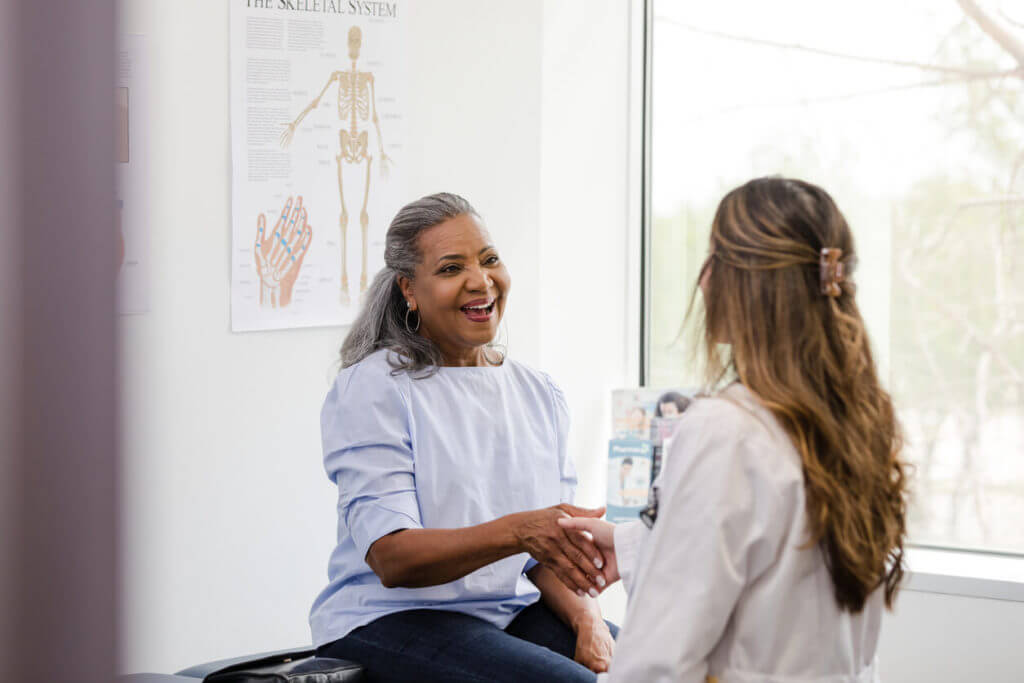
Most people only visit their doctor when they feel sick. However, whether you’re feeling sick or perfectly fine, it’s important to visit your doctor for regular check-ups. A regular check-up is a preventive healthcare appointment with your doctor to assess your overall health. These visits help make sure you are healthy, and if not, they facilitate faster medical care, sometimes before symptoms even develop.
The Benefits of Regular Check-Ups
Going for regular check-ups with your primary care physician can be great for your health and well-being. These benefits include:
Early Detection of Diseases
Regular check-ups can help detect diseases early, when they are most treatable. This is especially important for diseases with no symptoms in the early stages, such as high blood pressure, high cholesterol, and diabetes. When these diseases are detected early, they are more likely to be successfully treated and cured.
Reduced Risk of Complications
Having regular check-ups plays a crucial role in managing any chronic disease you may have or develop and in improving your quality of life. Even if you don’t have any health problems, your doctor can help identify factors that may put you at high risk for certain conditions. This way, you’re one step ahead and can minimize any risks.
Increased Lifespan and Improved Health
By seeing your doctor regularly, you can live a longer, healthier life. By detecting and managing health problems early, you can take steps to improve your overall health and well-being. Your doctor can also give you advice about maintaining a healthy lifestyle as you get older.
Reduced Healthcare Costs
Regular check-ups can help reduce healthcare costs in the long run. By detecting and treating diseases early, you can prevent more serious health problems that require more expensive treatment. It’s a long-term investment in your health that can truly benefit you over time.
What Happens During Check-Ups?
A regular check-up includes tests or screenings that will vary depending on your age, health status, and risk factors. Some common tests and screenings that you may need include:
- Blood pressure check
- Cholesterol check
- Blood sugar check
- Weight and height tracking
- Vision and hearing tests
- Pap smear and mammogram for women
- Prostate exam for men
In addition to these tests and screenings, your doctor will also ask you about your medical history, family medical history, lifestyle habits, and any concerns you may have about your health. They will also perform a physical exam, which may include checking your heart, lungs, abdomen, and other organs.
The results of your check-up will help your doctor determine your overall health and identify any potential problems. If any are detected, your doctor will discuss treatment options with you.
How Often Should You See Your Doctor?
The frequency of regular check-ups varies depending on your age, health status, and risk factors. However, as a general rule, adults should have a physical exam and bloodwork every year starting at age 18. If you have any chronic health conditions, you may need to see your doctor more often.
Your doctor may recommend a different frequency of check-ups based on your individual circumstances. It is important to talk to them about your health and risk factors, so they can recommend the best schedule for you.
Making the Most of Your Check-Ups
Whether you choose to see your doctor once a quarter or once a year, it’s important to make the most out of your regular check-ups. Here are a few tips to keep in mind as you prepare to visit your doctor:
- Be prepared. Before your appointment, gather all your medical records, including your insurance card, old medical records, and vaccination history. This will help your doctor get a complete picture of your health.
- Don’t be afraid to ask questions. Your primary care physician is there to answer any concerns you may have about your health. Make a list of questions to ask your doctor beforehand to ensure you don’t miss anything.
- Be honest with your doctor. Let your doctor know about your health history, lifestyle habits, and any concerns you may have. Being aware of your current health and habits will help them provide you with the best possible care.
- Take notes. During your appointment, take notes so that you can remember what your doctor said.
- Follow up. If your doctor recommends any tests or screenings, be sure to follow up and get them done. This is important for early detection and treatment of any health problems.
Reliable Primary Care Physician Near Me in Tucson, Arizona
Regularly seeing your doctor can play a crucial part in staying healthy. However, it’s also important to find a doctor whom you trust and are comfortable with for your regular check-ups. A primary care physician has a wide range of knowledge and skills that can address your health concerns during your check-ups. Find a primary care physician near you who can help make sure you stay strong and healthy.
Looking for a skilled primary care physician for your regular check-ups? Dr. Robert E. Lending in Tucson, Arizona, is a primary care physician who provides quality personalized healthcare on a concierge basis. His decades of experience have honed his knowledge and experience as one of the best primary care physicians in Arizona.
Schedule a visit with Dr. Lending by calling (520) 795-4291 or request an appointment online.



